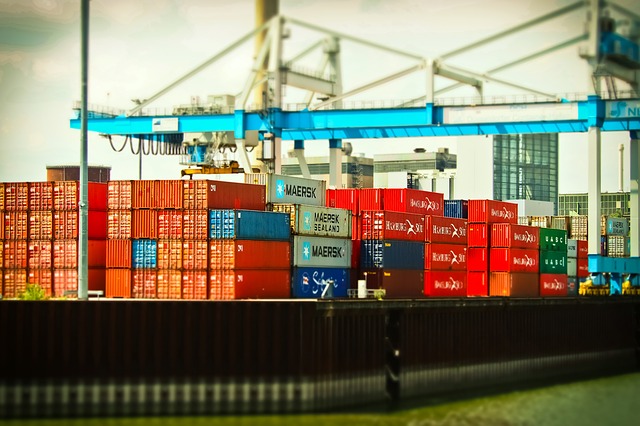
Do Trade Agreements Matter?
Briefing Notes: August 18, 2016
In Mercy enews of 13 June I addressed the issue of TTIP (Trans-Atlantic Trade and Investment Partnership) and what it means to us. This article will cover the two other key trade deals currently under negotiation; The Trans-Pacific Partnership (TPP) a trade agreement between twelve nations in the Pacific Rim and the The Comprehensive Economic and Trade Agreement (CETA), a free trade agreement between Canada and the European Union.

TPP is the largest free trade agreement ever negotiated, accounting for 40% of Gross Domestic Product (GDP) and one-third of world trade. It is being discussed between big corporations and twelve nations in the Pacific Rim, namely the United States, Canada, Mexico, Peru, Chile, New Zealand, Australia, Singapore, Malaysia, Brunei, Vietnam and Japan. Countries such as South Korea, China, Indonesia and the Philippines would expect to be included in the coming years.
The agreement covers trade for goods, services, agriculture, customs, and trade subsidies but this represents only a small portion of the agreement. It also allows wealthy countries and large corporations to reach across borders to impose limitations on a vast array of non-trade policies that impact the environment, telecommunications, visas, labour, and intellectual property. Some of the Trans National Corporations (TNCs) involved in this deal include Hewlett Packard, Chevron, Abbott, Starbucks, Wal-Mart, Boeing, IBM, and General Electric.
The drafting of this transnational deal has all been done behind closed doors. In the past five years and to this day, parliaments, civil society, media and the general public are excluded from the negotiating process. The negotiated texts will only be made public 4 years after TPP takes effect, subjecting the most vulnerable communities to its will, with little to no knowledge of its consequences. Meanwhile, over 600 US corporate advisors alongside officials from participating countries have access and influence over the agreements, but those who have to live with the results have no say. As in the TTIP negotiations, the only information on TPP so far has come from leaked documents.
Each signatory government is required to ensure its domestic policies comply with the terms of TPP. As it stands the rules can only be changed if all parties agree, thus TPP will impose permanent boundaries on domestic, federal and state policymaking. This is a blatant example of corporate aggression and erosion of national sovereignty and democracy.
A similarity linking TTIP and TPP is that these trade agreements give corporations permission to sue governments in secret tribunals. The clause, known as ‘investor state dispute resolution (ISDR), allows foreign corporations to sue governments if they pass public interest laws that infringe on the capacity of corporations to make a profit and or loss of future earnings. For example, ISDR is being used by cigarette manufacturers against governments, who have passed packaging laws to deter smoking.
CETA is similar in nature to TTIP and TPP, the big difference being that is has already been signed by the European Commission and the Canadian government. CETA Negotiations were completed in 2014 and now awaits ratification by the individual countries over the next 12 months. Due to the fact that CETA has already been signed, it means that it is now possible to see the 1,500 page deal. Alarmingly the document shows that it is a threat not only to our food standards, but also in the battle against climate change, our ability to regulate big banks to prevent another crash and our power to renationalise industries.
Like the other trade deals, CETA contains a legal system, open only to foreign corporations and investors. Should a European government make a decision, say, to outlaw dangerous chemicals, improve food safety or put cigarettes in plain packaging, a Canadian company can then sue that European government for “unfairness”. And by unfairness this simply means they can’t make as much profit as they expected. The “trial” would be held as a special tribunal, overseen by corporate lawyers. The whole purpose of CETA is to reduce regulation on business, the idea being that it will make it easier to export. But it will do far more than that. Standards would be reduced across the board on the basis that they are “obstacles to trade”. That could include food safety, workers’ rights and environmental regulation.

Update on the Ceta Discussions
The European Commission’s announcement on 28 June, 2016, stated that the EU-Canada trade deal will be concluded without the involvement of national parliaments. This has sparked debate at the EU summit in Brussels and was met with outrage in a number of countries, especially in the wake of the Brexit referendum result. David Cameron took the most aggressive position on CETA, not only supporting it entirely but pushing for provisional application in the UK.
Commission President Jean-Claude Juncker reportedly told EU leaders on June28th that the Commission considers CETA being an “EU-only” agreement and proposes July 5th this year as a “simple procedure” meaning that it will be adopted only by the European Parliament and representatives of member states and not national parliaments. This is currently being negotiated as France and Germany have objected to Juncker’s proposal.
The above serves to confirm what many believe about Trade Agreements that they are making the world a playground for the super-rich, contributing to the unequal economy that impacts most negatively on the vulnerable. As responsible citizens we need to work with others to reclaim our democratic rights and endeavour to bridge this inequality.
Messages to: Betty Lacey - Researcher, Global Action






